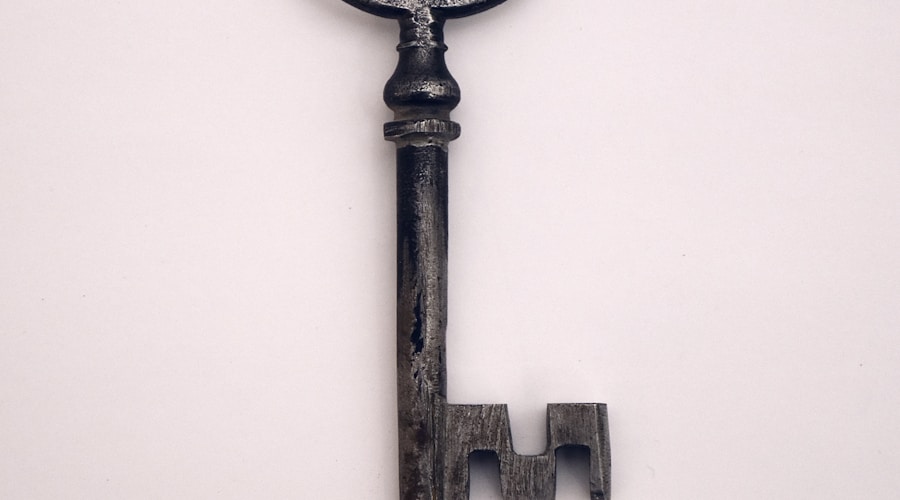Failure is often seen as a negative experience that we should avoid at all costs. But what if I told you that embracing failure could actually benefit your journey to success? Yes, you read that right. Mistakes, setbacks, and even failures have astonishing benefits that can propel you forward in ways you never imagined. In this article, we will uncover the unexpected beauty of failure and explore the various ways it can shape your personal growth, fuel innovation, build tenacity, and even refine your goals. Get ready to change your perspective and start embracing failure as a key to unlocking success.
Uncover the Unexpected Beauty of Failure
Failure is often viewed as a negative and undesirable outcome, something to be avoided at all costs. However, what if I told you that there is an unexpected beauty hidden within failure? Yes, you heard it right - failure has its own unique and astonishing benefits that can help you on your journey to success.
Failure offers valuable lessons that success alone cannot provide. When we fail, we are forced to step back and evaluate our mistakes and shortcomings. This self-reflection allows us to identify our weaknesses, gaps in our knowledge, and areas for improvement. As Henry Ford once said, "Failure is simply the opportunity to begin again, this time more intelligently."1
Moreover, failure fosters creativity and innovation. When we encounter roadblocks and setbacks, we are forced to think outside the box and come up with alternative solutions. This kind of thinking can lead to groundbreaking discoveries and unconventional approaches. As Thomas Edison famously remarked, "I have not failed. I've just found 10,000 ways that won't work."2
In addition, failure builds resilience and tenacity. When we experience failure, it can be disheartening and demotivating. However, it is during these challenging times that our true character is tested and our determination is strengthened. As Winston Churchill once said, "Success is not final, failure is not fatal: It is the courage to continue that counts."3
Embracing failure also encourages personal growth. When we fail, we are forced to confront our limitations and push ourselves beyond our comfort zones. This leads to self-discovery, self-improvement, and personal growth. As John C. Maxwell aptly put it, "Sometimes you win, sometimes you learn."4
Lastly, failure fuels motivation and hunger for success. When we fail, we experience a deep desire to improve and prove ourselves. It ignites a fire within us to work harder, smarter, and more passionately towards our goals. As Michael Jordan stated, "I've missed more than 9000 shots in my career. I've lost almost 300 games. 26 times, I've been trusted to take the game-winning shot...and missed. I've failed over and over and over again in my life. And that is why I succeed."5
So, next time you encounter failure on your path to success, remember the unexpected beauty it holds. Embrace it, learn from it, and allow it to transform you into a stronger, more resilient, and ultimately more successful individual.

The Art of Learning from Mistakes: An Essential Skill
Mistakes are not just failures, but invaluable lessons that shape our journey towards success. Embracing failure means recognizing the opportunity it presents for growth and learning. It is an art to learn from mistakes and use them to propel ourselves forward.
"Success is not final, failure is not fatal: It is the courage to continue that counts." - Winston Churchill
Learning from mistakes is an essential skill that helps us avoid repeating the same errors and allows us to improve ourselves. It enables us to gain valuable insights and knowledge that are otherwise unattainable. When we take the time to reflect on our failures, we can uncover valuable lessons that lead to personal growth and development.
"Mistakes are the portals of discovery." - James Joyce
One way to learn from mistakes is to analyze the circumstances surrounding the failure and identify what went wrong. By understanding the root cause of the mistake, we can develop strategies to prevent similar errors in the future. This analytical approach equips us with the knowledge to make better decisions and take calculated risks, increasing our chances of success.
"Failures, repeated failures, are finger posts on the road to achievement. One fails forward toward success." - C.S. Lewis6
Another aspect of learning from mistakes is embracing a growth mindset. Instead of viewing failures as setbacks, we should see them as opportunities for growth. This shift in perspective allows us to focus on the lessons learned rather than dwelling on the negative aspects of the failure. It encourages us to adapt, improve, and try again with a renewed sense of determination7 .
"Mistakes are the stepping stones to wisdom." - Samuel Smiles8
Learning from mistakes also involves seeking feedback and guidance from others. By sharing our failures with trusted mentors or friends, we gain a fresh perspective and valuable insights. Their advice and support can guide us towards better decision-making and help us navigate future challenges more effectively9 .
In summary, the art of learning from mistakes is an essential skill for personal growth and success. It requires us to embrace failure as an opportunity for learning, analyze our mistakes to understand the underlying causes, adopt a growth mindset, and seek feedback and guidance from others. By honing this skill, we can turn our failures into stepping stones toward excellence.
How Failure Shapes your Personal Growth
Failure is not the end, but rather an opportunity for personal growth. It is through our failures that we learn, adapt, and ultimately become better versions of ourselves. As renowned author John C. Maxwell once said, "The greatest mistake you can make in life is to be continually fearing you will make one."
Failure challenges us and pushes us out of our comfort zones. It forces us to examine our actions, identify our weaknesses, and find ways to improve. Dr. Carol S. Dweck, a psychologist known for her work on the growth mindset, states that "Failure is information—we label it failure, but it's more like, 'This didn't work, and I'm a problem solver, so I'll try something else.'" Embracing failure allows us to embrace the process of learning and development.
When we experience failure, it tests our resilience and perseverance. Winston Churchill once said, "Success is not final, failure is not fatal: It is the courage to continue that counts." Failure teaches us to persevere in the face of adversity and challenges us to overcome obstacles. It builds our character and strengthens our resolve to keep moving forward.
Failure breeds humility. It reminds us that we are not infallible and that we have limitations. It is in acknowledging our mistakes and taking responsibility for them that we can grow and become wiser. American business magnate, Warren Buffett, states, "It's good to learn from your mistakes. It's better to learn from other people's mistakes." Failure allows us to reflect on our actions, learn from them, and make better decisions in the future.
Failure also teaches us the value of persistence. Thomas Edison, the inventor of the light bulb, once said, "I have not failed. I've just found 10,000 ways that won't work." This perspective highlights the importance of persistence and the ability to see failure as a stepping stone towards success. Without persistence, great achievements would never be realized.
In conclusion, failure shapes our personal growth by challenging us, testing our resilience, teaching us humility, and instilling the value of persistence. It is through embracing failure that we can unlock our full potential and achieve greater success in life. As Ralph Waldo Emerson wisely said, "Our greatest glory is not in never failing, but in rising every time we fall."
Embrace Your Mistakes to Fuel Innovation
Mistakes are not setbacks, but rather stepping stones to innovation and growth. When we embrace our mistakes, we open ourselves up to new ideas and possibilities.
Innovation often arises from experimentation and trial and error. Look at some of the greatest inventions and breakthroughs in history. They all came about through a series of failures. Thomas Edison once said, "I have not failed. I've just found 10,000 ways that won't work." His attitude towards failure allowed him to persevere and ultimately invent the light bulb.
By embracing our mistakes, we are more open to taking risks and thinking outside the box. When something doesn't go as planned, we have the opportunity to reevaluate our approach and find innovative solutions.
Consider the story of the Post-it note. It was originally intended to be an adhesive for permanent use but turned out to be not sticky enough. Instead of considering it a failure, the inventor, Spencer Silver, saw potential in its weak adhesive and developed a product that became an indispensable office tool.
Embracing mistakes and failures encourages a culture of creativity and experimentation. When employees feel safe to take risks and make mistakes, they are more likely to be motivated to come up with innovative ideas. This mindset also opens the door for collaboration and brainstorming, as everyone is free to share their ideas without the fear of judgment or failure.
Innovation is all about pushing boundaries and challenging the status quo. As Steve Jobs once said, "Innovation distinguishes between a leader and a follower." By embracing our mistakes, we give ourselves permission to push those boundaries and seek out new possibilities.
By looking at mistakes as opportunities for growth and innovation, we can cultivate a mindset that promotes continuous improvement and learning. Embracing our mistakes not only fuels innovation but also fosters personal and professional growth. It allows us to see failure not as a final outcome, but as a necessary step on the journey to success.
So, the next time you make a mistake, remember that it's not a failure, but an opportunity to learn, grow, and innovate. As Winston Churchill said, "Success is not final, failure is not fatal: It is the courage to continue that counts." Embrace your mistakes, fuel your innovation, and unlock your true potential.
The Role of Failure in Building Tenacity and Resilience
Failure is not just a bump on the road to success, but an integral part of the journey itself. It has the unique ability to build tenacity and resilience within individuals. When we experience failure, we are faced with challenges, setbacks, and the possibility of giving up. It is in these moments that our true strength is tested.
Failure teaches us to persevere and keep going in the face of adversity. It pushes us to dig deep within ourselves and find the courage to overcome obstacles. As the renowned motivational speaker Zig Ziglar once said, "Failure is an event, not a person. Yesterday ended last night. Today is a brand new day and it's yours." Failure provides us with the opportunity to rise again, to redefine our goals, and to develop a gritty mentality that prepares us for future challenges.
It is through failure that we gain valuable life experiences. When we fail, we learn what not to do and how to improve ourselves. Thomas Edison, the inventor of the light bulb, famously stated, "I have not failed. I've just found 10,000 ways that won't work." Edison understood that failure was not a defeat but a stepping stone to success. Each failure was merely a lesson guiding him closer to his ultimate goal.
In addition to building tenacity and resilience, failure also helps us to develop adaptability. When things don't go as planned, we are forced to think on our feet and find alternative solutions. This flexibility allows us to navigate through unexpected challenges and adapt to changing circumstances. As author and entrepreneur Tim Ferriss once said, "What we fear doing most is usually what we most need to do." Failure forces us out of our comfort zone, encouraging personal growth and the development of new skills.
Failure can also serve as a great equalizer, leveling the playing field for everyone. Regardless of our backgrounds or advantages, failure is an experience that unites us all. It is in these moments of vulnerability that we can connect with others on a deeper level and cultivate empathy and understanding. When we share our stories of failure and how we overcame them, we inspire others to persevere in their own journeys.
In conclusion, failure plays a crucial role in building tenacity and resilience. It teaches us to persevere, to learn from our mistakes, and to adapt to changing circumstances. Failure is not a sign of weakness, but rather a testament to our strength and determination. As Frederick Douglass, a former slave and prominent abolitionist, once said, "If there is no struggle, there is no progress." Embrace failure as a catalyst for growth and let it guide you on your path to success.
Failure: An Unexpected Teacher of Success
Failure is often seen as a setback, something to be avoided at all costs. However, many successful individuals have found that failure can actually be an unexpected teacher on the path to achieving greatness. As Thomas Edison famously said, "I have not failed. I've just found 10,000 ways that won't work." This quote beautifully captures the essence of failure as a valuable learning experience.
Failure teaches us humility and resilience like nothing else. When we face setbacks and failures, it requires us to confront our own limitations and weaknesses. This humbling experience can be a powerful catalyst for growth and self-improvement. It forces us to reevaluate our strategies, learn from our mistakes, and adapt to new circumstances.
In fact, some of the greatest innovations and breakthroughs in history have come as a result of failure. Take the example of Alexander Fleming, who discovered penicillin by accident when he neglected to clean up his lab properly. His failure to maintain a sterile environment led to the growth of a mold that ultimately led to the discovery of antibiotics and revolutionized medicine . This unexpected failure turned out to be a transformative contribution to the field of medicine.
Failure also promotes creativity and innovation. When we fail, we are forced to think outside the box and explore new approaches. As Steve Jobs once said, "Sometimes when you innovate, you make mistakes. It is best to admit them quickly and get on with improving your other innovations." This mindset allows us to embrace failure as an opportunity for growth and innovation.
Moreover, failure can be a great teacher of perseverance and determination. It tests our ability to stay committed to our goals despite setbacks and challenges. As Thomas Edison himself demonstrated, failure is not the end, but rather a stepping stone towards success. Each failure brings us one step closer to finding the right solution, refining our goals, and ultimately achieving success.
When we embrace failure as a teacher, we are able to approach our endeavors with a growth mindset. We become more open to taking risks and trying new things, knowing that even if we fail, we will learn valuable lessons along the way. This mindset allows us to face adversity with resilience and optimism, knowing that failure is not the end, but rather a necessary part of the journey towards success.
So, the next time you experience failure, remember the words of Winston Churchill, who said, "Success is not final, failure is not fatal: It is the courage to continue that counts." Embrace failure as an unexpected teacher and use it as a stepping stone on your path to success.
Leveraging Failure to Chart New Pathways
Failure is often seen as a roadblock, hindering our progress and creating setbacks. However, it is essential to shift our perspective and view failure as an opportunity to chart new pathways. When we encounter obstacles or make mistakes, it opens up the possibility for exploration and creativity.
Failure offers the chance to learn from our experiences and make necessary adjustments. It prompts us to reevaluate our methods and find alternative solutions. As Thomas Edison famously said, "I have not failed. I've just found 10,000 ways that won't work". By leveraging failure, we can navigate uncharted territory and discover innovative ways to succeed.
Take the example of J.K. Rowling, the author of the immensely popular Harry Potter series. Before achieving worldwide fame, Rowling faced numerous rejections from publishers. However, she used these setbacks as stepping stones and persevered in her writing career. Rowling's resilience and determination eventually led her to success, catapulting her into literary stardom.
Failure can serve as a catalyst for self-discovery and personal growth. When faced with adversity, we are forced to confront our limitations, reflect on our choices, and define our values. It pushes us out of our comfort zone and compels us to think critically about our goals and aspirations.
For instance, Steve Jobs, the co-founder of Apple Inc., experienced failure when he was ousted from his own company. However, this setback taught him valuable lessons about humility and resilience. Jobs once said, "I didn't see it then, but it turned out that getting fired from Apple was the best thing that could have ever happened to me. The heaviness of being successful was replaced by the lightness of being a beginner again, less sure about everything. It freed me to enter one of the most creative periods of my life". Jobs used this failure as an opportunity to reinvent himself and eventually returned to Apple, propelling the company to unprecedented success.
Leveraging failure goes beyond personal growth, it can also fuel innovation and creativity. When we encounter setbacks, it provides us with the chance to think outside the box and come up with alternative approaches. Sometimes, the most groundbreaking ideas emerge from the ashes of failure.
One remarkable example is the story of James Dyson, the inventor of the bagless vacuum cleaner. Dyson dedicated years to creating a revolutionary product, and his journey was filled with failures and setbacks. He famously stated, "I made 5,127 prototypes of my vacuum before I got it right. There were 5,126 failures. But I learned from each one. That's how I came up with a solution. So I don't mind failure. I've always thought that schoolchildren should be marked by the number of failures they've had. The child who tries strange things and experiences lots of failures to get there is probably more creative". Dyson's persistence and willingness to learn from failure allowed him to revolutionize the industry and become a successful entrepreneur.
Ultimately, failure is not a destination but a stepping stone on the path to success. By leveraging failure, we can uncover hidden opportunities, fuel innovation, and create new pathways towards our goals. Embracing failure allows us to grow as individuals, both personally and professionally, and propels us forward on our journey to success.

The Power of Failure in Refining Your Goals
Failure has immense power to shape and refine our goals . In fact, it is often through failure that we gain a clear understanding of what we truly want to achieve and what steps we need to take to get there.
When we experience failure, we are forced to reevaluate our goals and reassess our strategies. This process allows us to refine our goals and make them more aligned with our true desires and passions. Failure serves as a valuable feedback mechanism, giving us insights into what is working and what needs to be adjusted.
Consider the example of Thomas Edison, the inventor of the light bulb. Edison famously said, "I have not failed. I've just found 10,000 ways that won't work." His relentless pursuit of the light bulb was fueled by his failures, which ultimately led to his success. Edison's goal of creating a sustainable source of light was refined through each failed attempt, until he finally achieved his breakthrough .
Failure acts as a compass, guiding us towards our true goals and revealing the necessary adjustments that need to be made. It helps us understand our limitations, strengths, and areas for improvement. By embracing failure and learning from it, we can refine our goals to ensure they are both realistic and meaningful.
Furthermore, failure can spark the discovery of entirely new goals. Sometimes, our failures open doors to opportunities that we never even considered before. By embracing failure as a catalyst for change and growth, we allow ourselves to explore different paths and potentially uncover passions and aspirations we didn't know we had.
Legendary basketball player Michael Jordan once said, "I've missed more than 9000 shots in my career. I've lost almost 300 games. 26 times, I've been trusted to take the game-winning shot and missed. I've failed over and over and over again in my life. And that is why I succeed." Jordan's failures played a pivotal role in refining his goals and shaping him into one of the greatest basketball players of all time .
In conclusion, failure has the power to refine our goals. It forces us to reflect, reassess, and make necessary adjustments. Whether it is through learning from our mistakes or discovering new paths, failure guides us toward our true desires and passions. Embracing failure as a tool for refining goals is key to unlocking success and achieving our fullest potential.
Embracing Failure: A Key to Unlocking Success
Failure, regardless of how it is perceived, is an inevitable part of life. However, rather than shying away from it, successful individuals embrace failure as a key to unlocking their ultimate success. They understand that failure is not the end of the road but a stepping stone towards achieving their goals.
One of the most significant benefits of embracing failure is the opportunity for growth. Failure pushes individuals out of their comfort zones and provides valuable lessons that cannot be learned through success alone. As Thomas Edison famously said, "I have not failed. I've just found 10,000 ways that won't work" . Similarly, embracing failure allows us to learn from our mistakes and refine our strategies for future endeavors.
Embracing failure also cultivates resilience. When faced with setbacks, individuals who embrace failure are more likely to bounce back and persevere. They understand that failure is not a reflection of their worth, but rather an opportunity to learn, adapt, and improve. As Winston Churchill once said, "Success is not final, failure is not fatal: It is the courage to continue that counts" .
Failure provides us with a unique perspective and fosters innovation. When we encounter obstacles, they force us to think creatively and find alternative solutions. As Albert Einstein noted, "Failure is success in progress" . Embracing failure allows us to think outside the box, challenge the status quo, and unlock new pathways towards success.
In addition, embracing failure is essential for personal growth. It helps individuals recognize their weaknesses, limitations, and areas that require improvement. Failures serve as humbling experiences that teach us to be more self-aware and introspective. It is through failure that we can better understand ourselves, our true passions, and our core values.
Failure also plays a crucial role in refining our goals. When we experience setbacks, it gives us the opportunity to reevaluate our objectives and realign our efforts accordingly. Embracing failure allows us to adjust our expectations and set more realistic and achievable goals. It helps us prioritize what truly matters and discard what no longer serves us.
Ultimately, embracing failure is about changing our perspective. Instead of viewing failure as a negative experience, we should see it as an essential part of the journey towards success. As J.K. Rowling once said, "Failure means a stripping away of the inessential. I stopped pretending to myself that I was anything other than what I was and began to direct all my energy into finishing the only work that mattered to me" . Embracing failure allows us to focus on what truly matters and pursue our passions wholeheartedly.
In conclusion, failure is not something to be feared or avoided. Instead, it should be embraced as a key ingredient in the recipe for success. Embracing failure allows us to grow, learn, innovate, and refine our goals. It builds resilience, fosters personal growth, and unlocks new pathways towards achieving our dreams. So, let us not shy away from failure but instead embrace it as a valuable teacher on our journey towards success.

Conclusion
Learning from mistakes is an essential skill that allows us to adapt, innovate, and grow. As Thomas Edison once said, "I have not failed. I've just found 10,000 ways that won't work." This mindset of perseverance and the ability to navigate setbacks is what separates those who achieve success from those who fall short.
Failure shapes our personal growth by challenging our limits and forcing us to step outside of our comfort zones. As Oprah Winfrey once said, "Do the one thing you think you cannot do. Fail at it. Try again. Do better the second time. The only people who never tumble are those who never mount the high wire." It is through failure that we discover our true strengths, abilities, and resilience.
Embracing mistakes also fuels innovation. As Steve Jobs famously said, "Innovation distinguishes between a leader and a follower." Failure pushes us to think outside the box, try new approaches, and challenge existing paradigms. It is through this process of trial and error that groundbreaking ideas and inventions are born.
Failure plays a vital role in building tenacity and resilience. As J.K. Rowling stated, "It is impossible to live without failing at something unless you live so cautiously that you might as well not have lived at all." Embracing failure allows us to develop a thick skin, bounce back from setbacks, and persist even in the face of adversity.
Failures are powerful teachers of success. As Henry Ford once said, "Failure is simply the opportunity to begin again, this time more intelligently." Each mistake we make provides us with an opportunity for growth and improvement. By embracing failure, we can learn from our missteps, refine our strategies, and ultimately achieve our goals.
In conclusion, the journey to success is not a smooth path devoid of mistakes. Instead, it is a journey filled with failures that, when embraced, can propel us towards greatness. As Michael Jordan famously said, "I've missed more than 9000 shots in my career. I've lost almost 300 games. 26 times, I've been trusted to take the game-winning shot and missed. I've failed over and over and over again in my life. And that is why I succeed." So, embrace failure, learn from your mistakes, and let them be the stepping stones that lead to your ultimate success.
2Thomas Edison, "Diary and Sundry Observations"
3Winston Churchill, Speech to the Harrow School
4John C. Maxwell, "Sometimes You Win, Sometimes You Learn"
5Michael Jordan
6John C. Maxwell, "Failing Forward: Turning Mistakes into Stepping Stones for Success"
7Winston S. Churchill, "The End of the Beginning"
8Carol S. Dweck, "Mindset: The New Psychology of Success"
9James Joyce, "Ulysses"
10Edward Slingerland, "Trying Not to Try: The Art and Science of Spontaneity"
11C.S. Lewis, "The Horse and His Boy"
12Carol S. Dweck, "Mindset: The New Psychology of Success"
13Samuel Smiles, "Self-help; with Illustrations of Character, Conduct, and Perseverance"
14John C. Maxwell, "Failing Forward: Turning Mistakes into Stepping Stones for Success"
15John C. Maxwell, "Failing Forward: Turning Mistakes into Stepping Stones for Success"
16Carol S. Dweck, "Mindset: The New Psychology of Success"
17Winston S. Churchill, "The Churchill Commandments"
18Warren Buffett, "The Essays of Warren Buffett: Lessons for Corporate America"
19Thomas A. Edison, "Edison: His Life and Inventions"
20Ralph Waldo Emerson, "The Complete Prose Works of Ralph Waldo Emerson"
21Angela Lee Duckworth, "Grit: The Power of Passion and Perseverance"
22Thomas Edison, "Favorites"
23Josh Linkner, "Disciplined Dreaming: A Proven System to Drive Breakthrough Creativity"
24Ed Catmull, "Creativity, Inc.: Overcoming the Unseen Forces That Stand in the Way of True Inspiration"
25Steve Jobs, "The Innovation Secrets of Steve Jobs: Insanely Different Principles for Breakthrough Success"
26Carol S. Dweck, "Mindset: The New Psychology of Success"
27Winston Churchill, "The Gathering Storm"
28Angela Duckworth, "Grit: The Power of Passion and Perseverance."
29Zig Ziglar, "See You at the Top."
30Thomas Edison, "The Diary and Sundry Observations of Thomas Alva Edison."
31Tim Ferriss, "The 4-Hour Workweek."
32Frederick Douglass, "Narrative of the Life of Frederick Douglass, an American Slave."
33Thomas A. Edison. "Thomas Edison: His Life and Inventions". Harper & Brothers, 1894.
34Isaac Asimov. "Asimov's Biographical Encyclopedia of Science and Technology". Doubleday, 1964.
35Walter Isaacson. "Steve Jobs". Simon & Schuster, 2011.
36Winston Churchill. "This Was Their Finest Hour". Corona Pub Co, 1984.
37Failing Forward: Turning Mistakes into Stepping Stones for Success by John C. Maxwell
38Thomas’ Edwards Quote Book by Thomas Edison
39J.K. Rowling: A Biography by Sean Smith
40Steve Jobs by Walter Isaacson
41Against the Odds: An Autobiography by James Dyson
42Angela Duckworth, "Grit: The Power of Passion and Perseverance" (2016)
43Walter Isaacson, "Steve Jobs" (2011)
44Anthony Robbins, "Awaken the Giant Within" (1991)
45John C. Maxwell. Failing Forward: Turning Mistakes into Stepping Stones for Success.
46Thomas A. Edison. My Philosophy of Life.
47Winston Churchill. Success and Failure.
48Albert Einstein. The Ultimate Quotable Einstein.
49J.K. Rowling. Harvard Commencement Speech.

